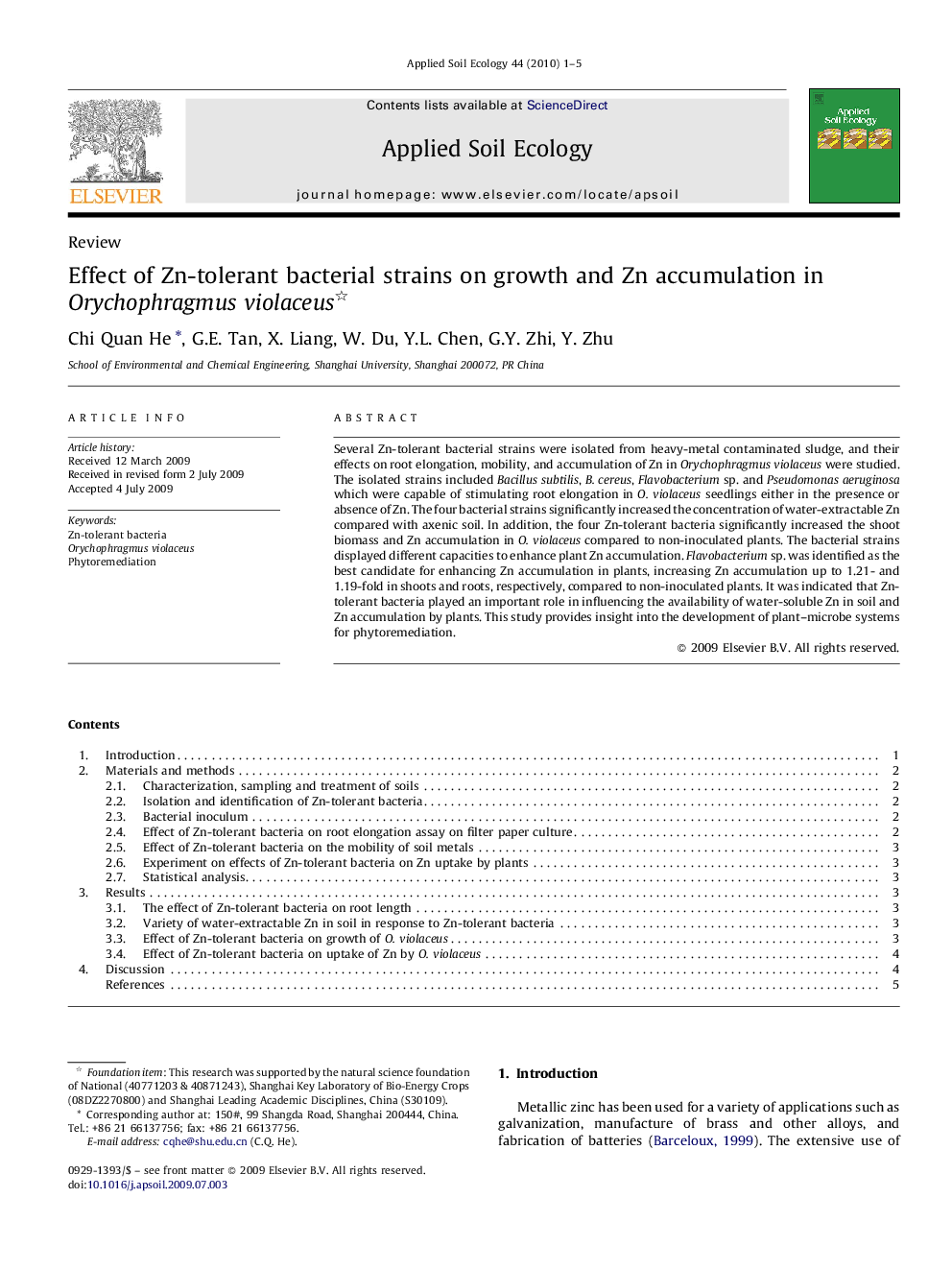| Article ID | Journal | Published Year | Pages | File Type |
|---|---|---|---|---|
| 4383028 | Applied Soil Ecology | 2010 | 5 Pages |
Several Zn-tolerant bacterial strains were isolated from heavy-metal contaminated sludge, and their effects on root elongation, mobility, and accumulation of Zn in Orychophragmus violaceus were studied. The isolated strains included Bacillus subtilis, B. cereus, Flavobacterium sp. and Pseudomonas aeruginosa which were capable of stimulating root elongation in O. violaceus seedlings either in the presence or absence of Zn. The four bacterial strains significantly increased the concentration of water-extractable Zn compared with axenic soil. In addition, the four Zn-tolerant bacteria significantly increased the shoot biomass and Zn accumulation in O. violaceus compared to non-inoculated plants. The bacterial strains displayed different capacities to enhance plant Zn accumulation. Flavobacterium sp. was identified as the best candidate for enhancing Zn accumulation in plants, increasing Zn accumulation up to 1.21- and 1.19-fold in shoots and roots, respectively, compared to non-inoculated plants. It was indicated that Zn-tolerant bacteria played an important role in influencing the availability of water-soluble Zn in soil and Zn accumulation by plants. This study provides insight into the development of plant–microbe systems for phytoremediation.
